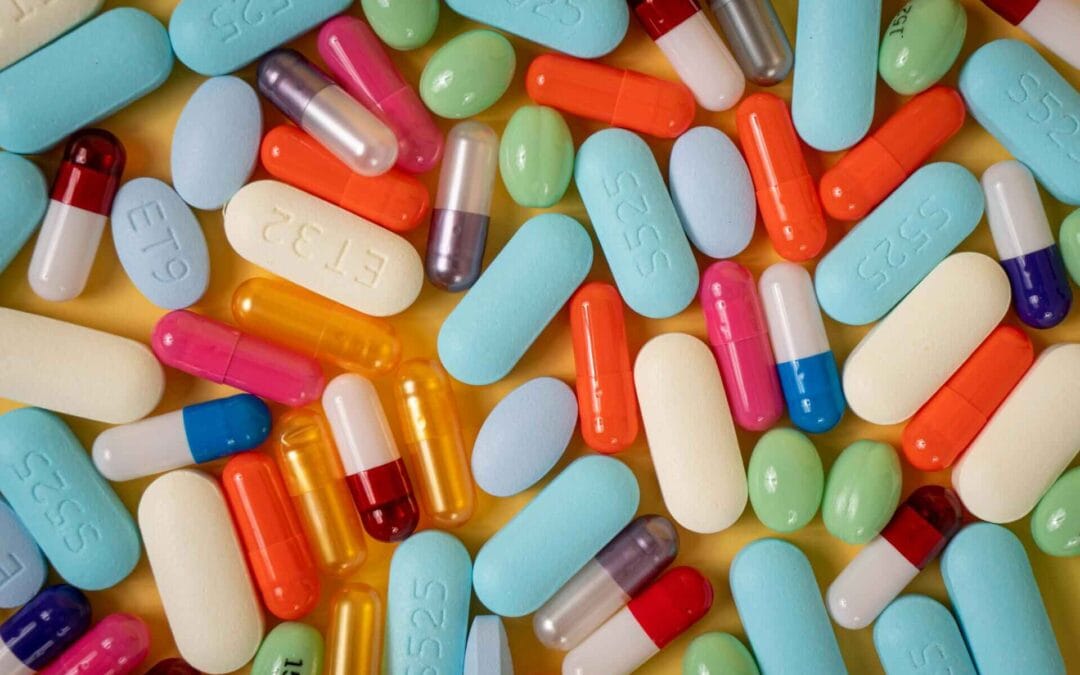Protein is very beneficial to one’s health.
It is a nutrient that must be ingested daily to satisfy your body’s requirements.
Protein has a dietary reference intake (DRI) of 0.36 grams per pound of body weight or 0.8 grams per kilogram.
However, there is a lot of data that suggests eating more protein for weight reduction and other health advantages.
This article examines protein’s health benefits in-depth and offers advice on how to get the greatest outcomes from a high-protein diet.
What Exactly Is Protein, and Why Is It So Important?
Protein, along with carbohydrates and fat, is one of the three macronutrients.
It serves the following functions in your body:
- Protein is the primary building block of your muscles, bones, skin, and hair. These tissues are constantly being repaired and replenished with new protein.
- Hormones: Hormones are chemical messenger proteins that enable your body’s cells and organs to interact with one another.
- Enzymes: Most enzymes are proteins, and they power the hundreds of chemical processes that occur throughout your body.
- Transportation and storage: Some proteins aid in the delivery of essential substances to their destinations. The protein hemoglobin, for example, transports oxygen to your body’s cells.
Protein is composed of smaller parts called amino acids.
Nine of the 22 amino acids are deemed “essential,” which means they must be obtained from the diet since your body cannot produce them.
Importantly, depending on their amino acid composition, certain foods contain more protein than others.
In general, animal products are termed “complete protein” since they include all of the necessary amino acids in the appropriate proportions required by your body. Eggs, dairy, meat, fish, and fowl are examples.
Vegetable proteins do not contain all of the required amino acids, but they may be combined with other plant sources to produce a complete protein. Plant foods rich in protein include beans, lentils, grains, soy, nuts, and seeds.
Although protein quality is crucial, the quantity of protein consumed is critical.
Many academics feel that current protein guidelines are too low to maintain long-term health. (1)
Protein’s Effects on Weight Loss
According to research, increasing your protein consumption may have a significant impact on your appetite, metabolic rate, weight, and body composition.
Appetite and Satisfaction
Consuming additional protein may help to decrease your hunger and appetite for many hours after you eat.
Protein stimulates the synthesis of hormones such as PYY and GLP-1, which help you feel full and pleased. Furthermore, it aids in the reduction of ghrelin, popularly known as the “hunger hormone.” (1, 2, 3, 4)
In a controlled trial of 12 healthy women, those who ate a high-protein diet had higher GLP-1 levels, more sensations of fullness, and less appetite than those who ate a low-protein diet. (5)
Because of these effects on hunger and fullness, a greater protein intake usually results in a natural decrease in food consumption.
Another research found that when 19 healthy young people were permitted to eat as much as they wanted on a diet high in protein, they consumed 441 fewer calories per day than when they followed a diet low in protein. (6)
Another reason protein is so gratifying seems to be the considerable rise in metabolic rate that happens during digesting. (7)
The Metabolic Rate
A greater protein intake may cause you to burn more calories.
Protein digestion seems to enhance metabolic rate by 20–35%, compared to a 5–15% rise when carbohydrates or fat are digested. (8)
Multiple studies have revealed that when individuals consume high-protein meals, they burn more calories for several hours thereafter. (9, 10)
A high-protein diet for one day increased metabolic rate after meals about twice as much as a high-carb diet for one day in a study of ten healthy young women. (11)
Body Composition and Weight Loss
Not surprisingly, protein’s capacity to reduce hunger, enhance fullness, and boost metabolism may aid in weight loss.
Increasing protein consumption helps weight and fat reduction, according to much high-quality research. (12, 13)
A six-month diet study involving 65 overweight and obese women found that the high-protein group shed 43 percent more fat than the high-carb group. Furthermore, 35% of the women in the high-protein group shed at least 22 pounds (10 kg). (14)
When you cut your calorie intake, your metabolism usually slows down. This is attributed in part to muscle atrophy.
However, studies show that eating more protein may help guard against muscle loss and keep your metabolic rate high. (15)
High-protein diets were shown to be more successful than standard-protein diets for reducing weight, keeping muscle mass, and minimizing metabolic slowing during weight reduction in a major evaluation of 24 research including over 1,000 participants.
Importantly, everyone can benefit from a regular or high-protein diet.
However, according to one European research, high-protein diets would be highly helpful for weight reduction and maintenance in 67 percent of the population depending on distinct gene types.
Protein’s Other Beneficial Effects
Protein, in addition to its weight-loss benefits, may aid boost health in a variety of ways:
- Enhance muscle mass: When paired with resistance exercise, greater protein consumption has been demonstrated in studies to increase muscle growth and strength. (16, 17)
- Reduce muscle loss as you become older: Many individuals lose muscle as they get older. According to one research, consuming a protein shake regularly helped safeguard muscular health in both healthy older men and those suffering from age-related muscle loss. (18, 19)
- Increased protein consumption may help to strengthen bones. In one research, older women who consumed the most animal protein had a 69 percent lower risk of hip fracture. (20, 21)
- Improve wound healing: Studies have indicated that high-protein diets help speed up the healing of wounds caused by surgery or injury, such as bedsores. (22, 23)
How Much Protein Should You Eat daily?
The ideal quantity of protein to ingest each day is somewhat debatable.
A 150-pound (68-kg) individual would need around 54 grams of protein per day based on the DRI of 0.36 grams of protein per pound of body weight, or 0.8 grams per kilogram.
While this may be sufficient to avoid outright protein deprivation, many experts feel it is insufficient for optimum health, including muscle mass maintenance. (24)
Research has indicated that older persons, in particular, need more protein than the DRI, with 0.6 grams of protein per pound, or 1.3 grams per kilogram, helping to prevent age-related muscle loss. (25, 26)
Furthermore, diets that include up to twice the DRI of 0.75 grams of protein per pound, or 1.6 grams per kilogram, have been shown to increase weight and fat reduction, enhance body composition, and preserve muscle during weight loss. (27)
However, increasing your protein consumption over this level does not seem to bring any further advantages.
According to one research, males who ingested 0.75 grams of protein per pound, or 1.6 grams per kilogram, shed somewhat more fat and gained comparable muscle mass to those who consumed 1.1 grams per pound, or 2.4 grams per kilogram.
A high-protein diet for weight reduction and general health should include 0.6–0.75 grams of protein per pound of body weight, or 1.2–1.6 grams per kilogram, as well as 20–30% of your daily calories.
This gives a wide range of roughly 82–110 grams of protein per day for a 150-pound (68-kg) individual, depending on calorie consumption.
Furthermore, rather than ingesting the majority of your protein at one meal, it’s crucial to spread it out throughout the day. This permits your body to make the most use of protein.
How to Adhere to a High-Protein Diet
A high-protein diet is simple to follow and may be tailored to your dietary tastes and health objectives.
For example, to keep your blood sugar under control, you may want to adopt a low-carb, high-protein diet.
If you exclude milk products, you can eat a protein-rich dairy-free diet.
Even a vegetarian diet rich in protein may contain eggs or dairy, as well as lots of beans and other plant proteins.
Here are some general tips for adhering to a high-protein diet:
- Maintain a food diary: Begin a food journal using an app or website that offers protein values for hundreds of foods and enables you to establish your calorie and macronutrient goals.
- To determine your protein requirements, multiply your weight in pounds by 0.6–0.75 grams, or your weight in kilograms by 1.2–1.6 grams.
- Consume at least 25–30 grams of protein at each meal: Studies have indicated that taking at least 25 grams of protein at each meal may help weight reduction, muscle maintenance, and general health.
- Include both animal and plant proteins in your diet: Combining the two kinds makes your diet more nutritious overall.
- Select high-quality protein sources, such as: Instead of processed meats like bacon and lunch meats, go for fresh meats, eggs, dairy, and other proteins.
- Eat well-balanced meals: At each meal, balance high-protein meals with vegetables, fruits, and other plant foods.
Finally, here’s a list of 19 great high-protein dishes to get you started.
Sample High-Protein Meal Plan
The example below contains around 100 grams of protein per day. You may, however, change the portions to suit your requirements.
Monday
- 3 eggs, 1 piece whole grain bread with 1 tablespoon almond butter, and a pear for breakfast
- Lunch will consist of a fresh avocado and cottage cheese salad and an orange.
- 6 ounces (170 g) steak, sweet potato, and grilled zucchini for dinner
Tuesday
- Smoothie prepared with 1 scoop protein powder, 1 cup coconut milk, and strawberries for breakfast.
- Lunch consists of 4 ounces (114 g) canned salmon, mixed greens, olive oil, vinegar, and an apple.
- 4 ounces (114 g) grilled chicken with quinoa and Brussels sprouts for dinner
Wednesday
- Oatmeal and one cup plain Greek yogurt with 1/4 cup chopped nuts for breakfast.
- Lunch consists of 4 ounces (114 g) of chicken combined with avocado, red bell pepper, and peach.
- Dinner is all meat and vegetables. Brown rice with chili.
Thursday
- Breakfast: Spanish omelet with three eggs, one ounce of cheese, jalapeño peppers, black olives, salsa, and an orange.
- Lunch: Brown rice and leftover All Meat Veggie Chili.
- 4 ounces (114 g) halibut, lentils, and broccoli for dinner
Friday
- 1 cup cottage cheese with 1/4 cup chopped walnuts, sliced apples, and cinnamon for breakfast
- Lunch: 4 ounces (114 g) canned salmon with healthy mayonnaise on sprouted grain toast with carrot sticks.
- Dinner consists of chicken meatballs with marinara sauce, spaghetti squash, and raspberries.
Saturday
- Breakfast: A frittata cooked with three eggs, one ounce of cheese, and half a cup of chopped potatoes.
- Lunch: Chicken meatballs with marinara sauce from the night before and spaghetti squash with an apple.
- Dinner: 3 ounces (85 g) shrimp fajitas on a corn tortilla with grilled onions and bell peppers, guacamole, and 1 cup black beans.
Sunday
- Protein Pumpkin Pancakes with 1/4 cup chopped pecans for breakfast.
- 1 cup plain Greek yogurt combined with 1/4 cup chopped mixed nuts and pineapple for lunch
- 6 ounces (170 g) grilled fish, potatoes, and sautéed spinach for dinner
Potential Adverse Effects of High-Protein Diets
For the most part, high-protein diets are safe and healthful.
Higher protein consumption, contrary to common assumptions, does not promote renal difficulties in those with normal kidney function. (28, 29)
Furthermore, research indicated that when overweight persons with diabetes and early-stage renal disease followed a weight reduction diet high in protein for 12 months, their kidney function did not deteriorate. (30)
People with intermediate to severe renal illness, on the other hand, usually need to limit their protein consumption to retain their residual kidney function. (31, 32)
Insensitive persons, high-protein diets may potentially induce kidney stones. According to one research, this was mostly true for those who ate a lot of animal protein rather than a lot of vegetable protein. (33, 34)
Furthermore, persons with liver disease or other major health concerns should see their doctor before embarking on a high-protein diet.
Result in Bottom Line
Protein is an essential nutrient.
Greater protein consumption has been associated with improved appetite, weight, body composition, aging, and general health.
Spread your protein consumption throughout the day, pick high-quality sources, and balance your intake with healthy fats and carbohydrates to gain the most advantages from a high-protein diet.







0 Comments